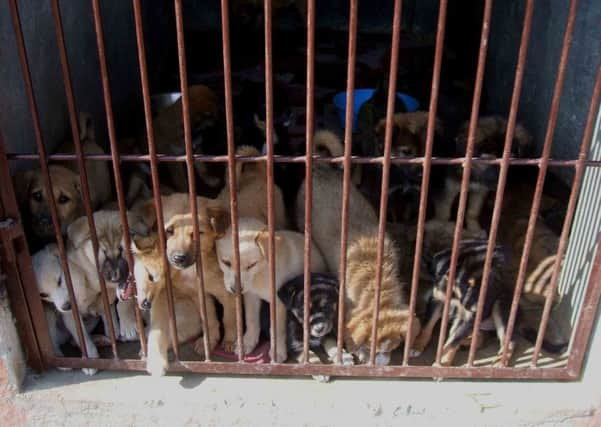Puppy smuggling is now serious problem


Puppies travelling into Britain under the Pet Travel Scheme (PETS) must not be for sale. They need to be at least 15 weeks old, microchipped, vaccinated against rabies, treated for tapeworm, and have a pet passport. However, evidence that underage puppies are regularly being brought into the UK, in the majority of cases with falsified data on their passports, by corrupt commercial dealers from Eastern Europe using PETS as a cover to command exorbitant prices for the ever increasing demand for designer dogs.
These puppies are far too young to travel, meaning their vaccinations are invalid - if they have them at all. They are then being sold to unsuspecting families in this country, who often have no idea that they have a pet from abroad until their vet finds a foreign microchip and the puppy is seized and quarantined.
Advertisement
Hide AdAdvertisement
Hide AdSmuggling these tiny underage puppies over thousands of miles in cramped conditions is bad enough but with some not properly vaccinated, diseases like rabies and tapeworm are also extremely likely to spread within our borders.
Studies have shown that separation under eight weeks old can cause psychological and behavioural issues such as anxiety, fearfulness, noise phobia, aggression, obsessive-compulsive disorder etc.
Points to consider when buying a puppy: 1. Meet at their home not a pub car park; 2. See the pups with their Mother. Is she friendly, interactive with the litter? If you’re not
allowed to see them together, they may not be her puppies! 3. Are they clean and healthy looking? 4. Make sure their documents are REAL – check with Kennel Club or equivalent; 5. Avoid anyone advertising more than three different breeds; 6. Never buy from a pet shop; 7. Do Not buy a puppy if you have any doubts about the breeder or situation – even if you want to rescue it; 8. Good breeders offer advice for the lifetime of your puppy and give Puppy Packs detailing date of last and next vaccinations, worming, microchip information, food, free insurance for the first si weeks etc.